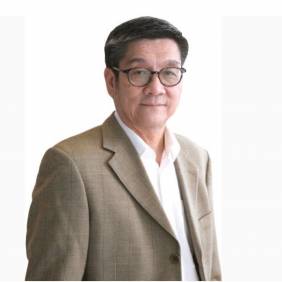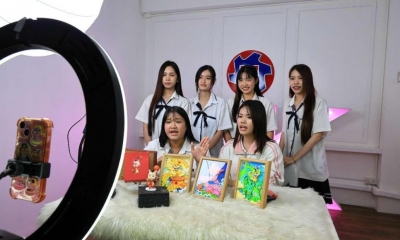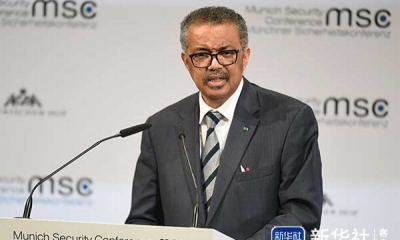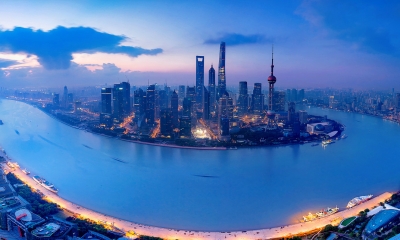A New Paradigm of Human Rights for the Global South
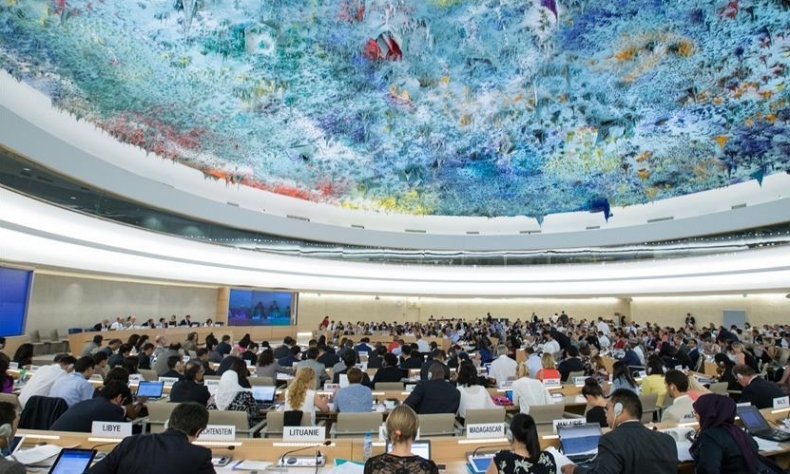
The collective rise of the Global South, rapid technological advancement and existential threat of climate change have brought about new challenges in promoting and upholding human rights.
Editor’s Note: This is a speech delivered by Koh King Kee, President of Centre for New Inclusive Asia, at the side event of the 45th session of the Universal Periodic Review Working Group, with the theme “Take Comprehensive Approach to Advancing Global Human Rights Governance” hosted by the United Nations Association of China in Geneva on January 22, 2024.
The UN Declaration of Human Rights was enacted in the aftermath of World War II on December 10, 1948. It is a ground-breaking document in the history of mankind that emphasizes the inherent dignity and equal rights of all individuals, irrespective of their race, nationality, gender, religion, and social status.
The UN Human Rights Declaration has been a universal standard for the protection of human rights across borders and cultures. It encompasses a broad spectrum of civil, political, economic, social, and cultural rights, providing a comprehensive framework for building societies founded on the principles of justice and equality.
Over the years, the Declaration has played a crucial role in shaping national and international laws, influencing constitutions, and serving as a basis for legal frameworks that protect human rights around the globe.
However, historically, human rights discourse has often been shaped from the perspectives of western countries. The UN Human Rights Declaration is seen by many as reflecting western values, imposing a western cultural outlook on the world. It neglects the cultural and regional variations in the conception of human rights.
The collective rise of the Global South, rapid technological advancement and existential threat of climate change have brought about new challenges in promoting and upholding human rights.
Economic disparities, historical injustice, and cultural diversity present unique challenges that demand a fresh perspective on human rights — one that reflects the stark realities of the Global South.
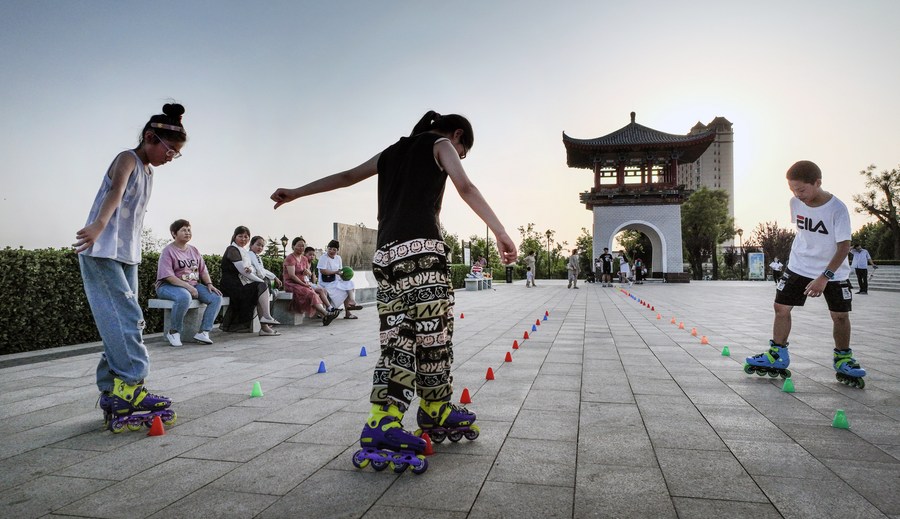
Selective application of human rights standards
Concerns have often been raised about the selectivity or double standard in the application of human rights standards. Critics argue that powerful nations have been able to escape scrutiny for human rights abuses while smaller countries may be unfairly punished for perceived violations of human rights.
It is contended that this double standard in the application of human rights standards is nothing but sheer hypocrisy of the West, which has no moral high ground in setting the standards of human rights based on its values.
Amidst the U.S.-China rivalry, human rights have often been geopoliticized and weaponized by the U.S. and its allies to further their geopolitical or geoeconomic interests. China’s Xinjiang is a case of how it has been distorted and framed by the West as an accusation of “genocide”, purposefully turning it into a tool to disrupt China’s peaceful development through sanctions and outright bans of the import of goods from Xinjiang.
The UN Human Rights Declaration places a strong emphasis on civil and political rights without giving equal weight to economic, social, and cultural rights. It does not provide sufficient protection for specific vulnerable groups, such as indigenous peoples, refugees, and migrants. These groups may face unique challenges that are not adequately addressed in the Declaration.
It is also argued that the current frameworks of human rights often fail to address the specific needs and contextual realities of the Global South, which accounts for more than 80 percent of the world’s population.
Subsistence rights must take centre stage
It is time for us to acknowledge the rich tapestry of cultures, histories, and struggles that define the Global South and adapt our understanding of human rights accordingly. A new paradigm of human rights for the Global South is needed to comprehensively advance global human rights governance.
First and foremost, subsistence rights must take centre stage. Subsistence rights such as the rights to food, clean water, shelter, education and healthcare, are rights that individuals or communities must have for survival and well-being.
Meeting these basic needs is a fundamental prerequisite for individuals to lead a dignified life, without which human rights are nothing but empty talks.
As most of the Global South countries are still grappling with economic disparities, in the context of international human rights discourse, subsistence rights are integral to addressing issues of poverty, inequality, and social justice.
The new paradigm should prioritize education initiatives that empower individuals, particularly girls and women, fostering intellectual growth and breaking the chains of generational poverty.
Investment in education is the very foundation of a just and prosperous society.
Healthcare, another pillar of human rights, remains elusive for countless individuals in the Global South. The new paradigm should include access to quality healthcare by all, addressing not only infectious diseases but also the underlying health disparities that perpetuate cycles of suffering.
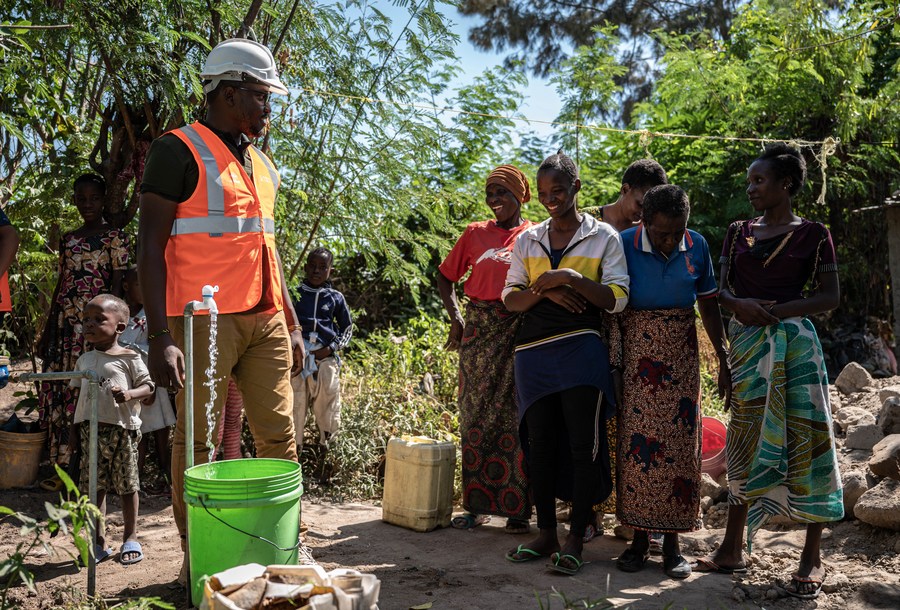
Access to clean water, air, and a healthy living environment is a basic human right that is often compromised in the face of industrialization and development. Climate change disproportionately affects vulnerable communities, exacerbating existing challenges. The new paradigm must advocate for sustainable development, recognizing the interconnectedness of environmental health and human well-being.
People from the Global South are entitled to live in a clean and green environment as those in the developed nations, as we are all inhabitants of the Planet Earth. Mankind is a Community with a Shared Future.
In the realm of political rights, the Global South often faces unique challenges. Democracy should be participatory, and the voices of marginalized communities must be heard. It is crucial to acknowledge and respect diverse national conditions and political landscapes, rejecting a one-size-fits-all approach.
Additionally, the Global South has a right to cultural preservation and self-determination. The new paradigm must respect and celebrate the rich cultural diversity of these nations, acknowledging that human rights are not universal in a cookie-cutter sense but should be adapted to reflect the unique needs and aspirations of each community.
Digital rights
Digital rights are a human right.
The Covid-19 pandemic has accelerated the digital transformation of the world. It acted as a catalyst for the wide adoption of digital technology, transforming the way we work, learn, connect, and engage with the world.
Individuals should enjoy the same rights and protection in the digital space as we do in the physical world. This concept recognizes the growing significance of digital technologies in shaping various aspects of our lives and upholds fundamental human rights such as privacy, access to information and freedom of expression.
Intersectional perspective of human rights
The new paradigm of human rights must recognize the overlapping identities and vulnerabilities that individuals in the Global South may face. It is not enough to focus on the political and civil aspects of human rights; we must understand and address the complex interplay of factors such as race, culture, gender, religion and political environment. An intersectional perspective ensures that our efforts are comprehensive and that no one is left behind.
Improving human rights governance is an ongoing process that requires sustained efforts from all stakeholders. Collaboration, commitment, and a comprehensive approach are key to achieving meaningful progress in the promotion and protection of human rights in the truly universal sense.
The time has come for a transformative shift in our understanding and application of human rights, taking cognizance of the specific needs and contextual realities of the Global South.
By focusing on subsistence rights, access to education and healthcare, environmental sustainability, political participation, cultural preservation, gender equality and access to digital technology, we can forge a new paradigm that truly respects the dignity and rights of every individual, transcending borders and cultures.
The article reflects the author’s opinions, and not necessarily the views of China Focus.
 Facebook
Facebook
 Twitter
Twitter
 Linkedin
Linkedin
 Google +
Google +



